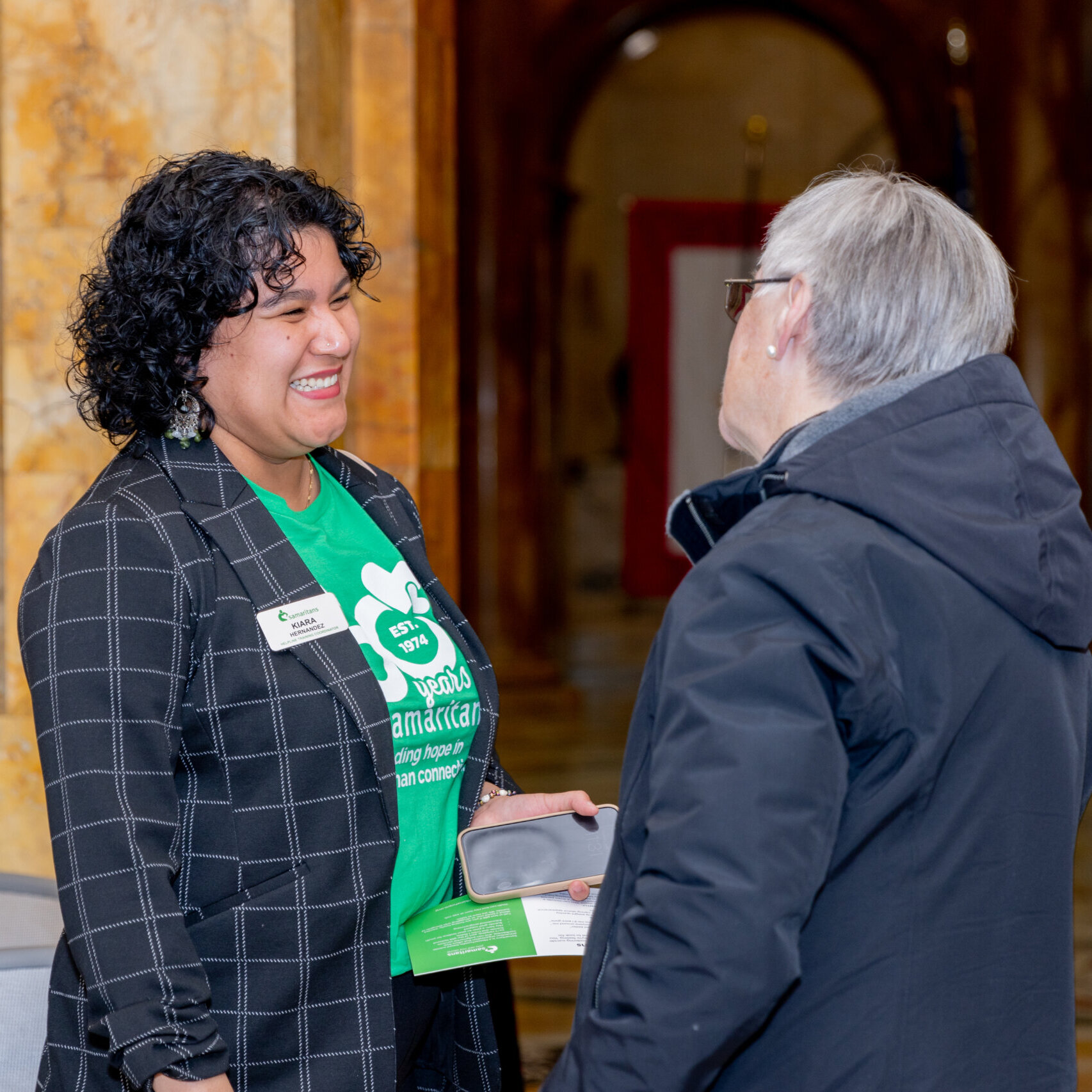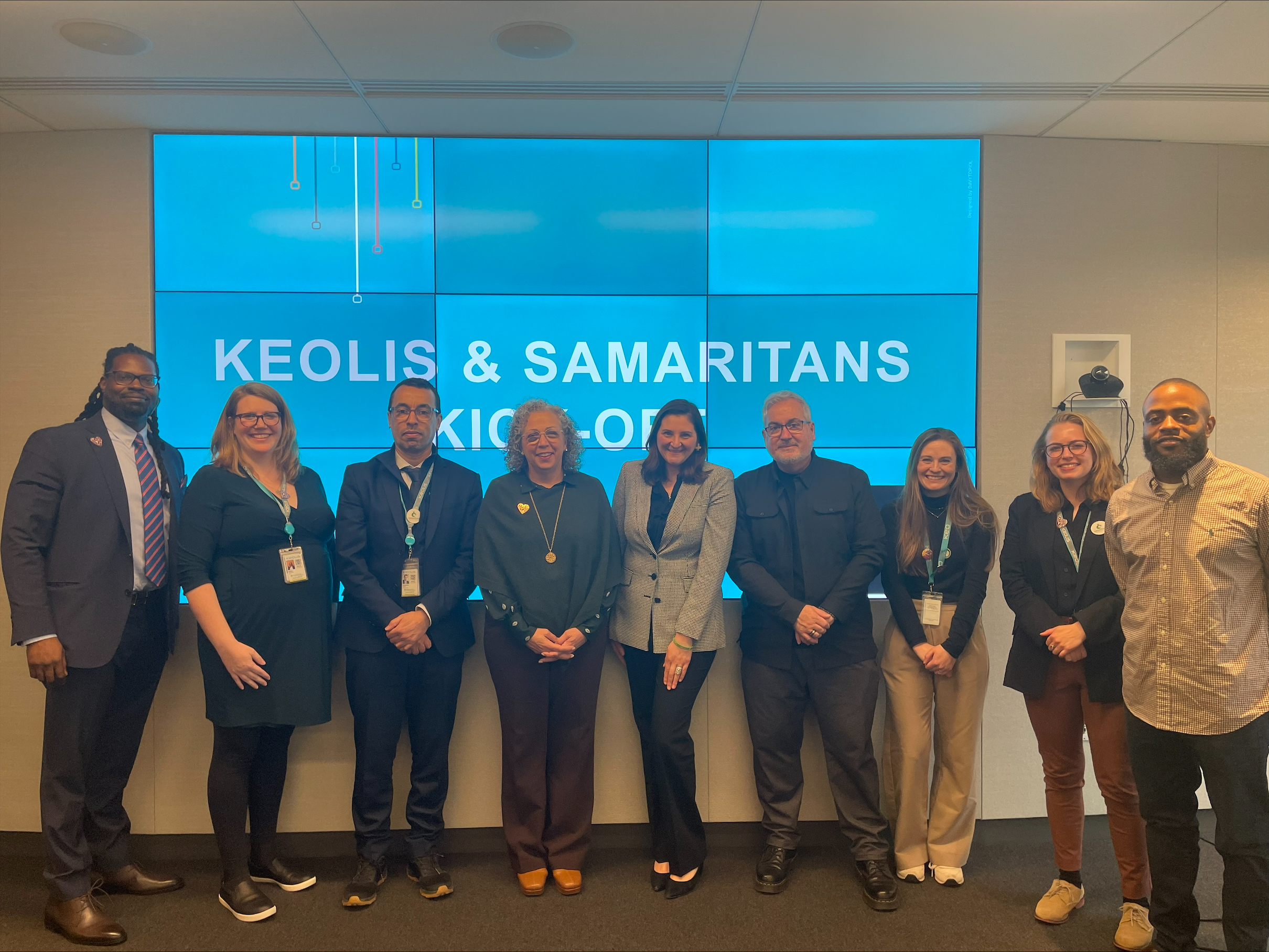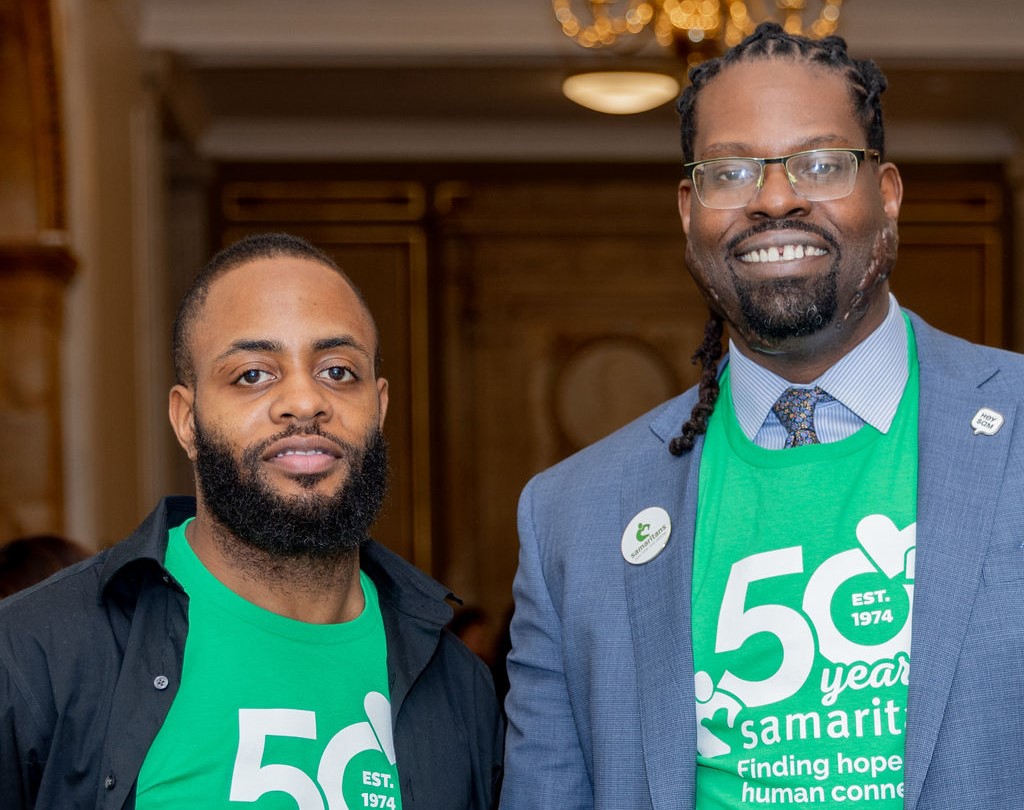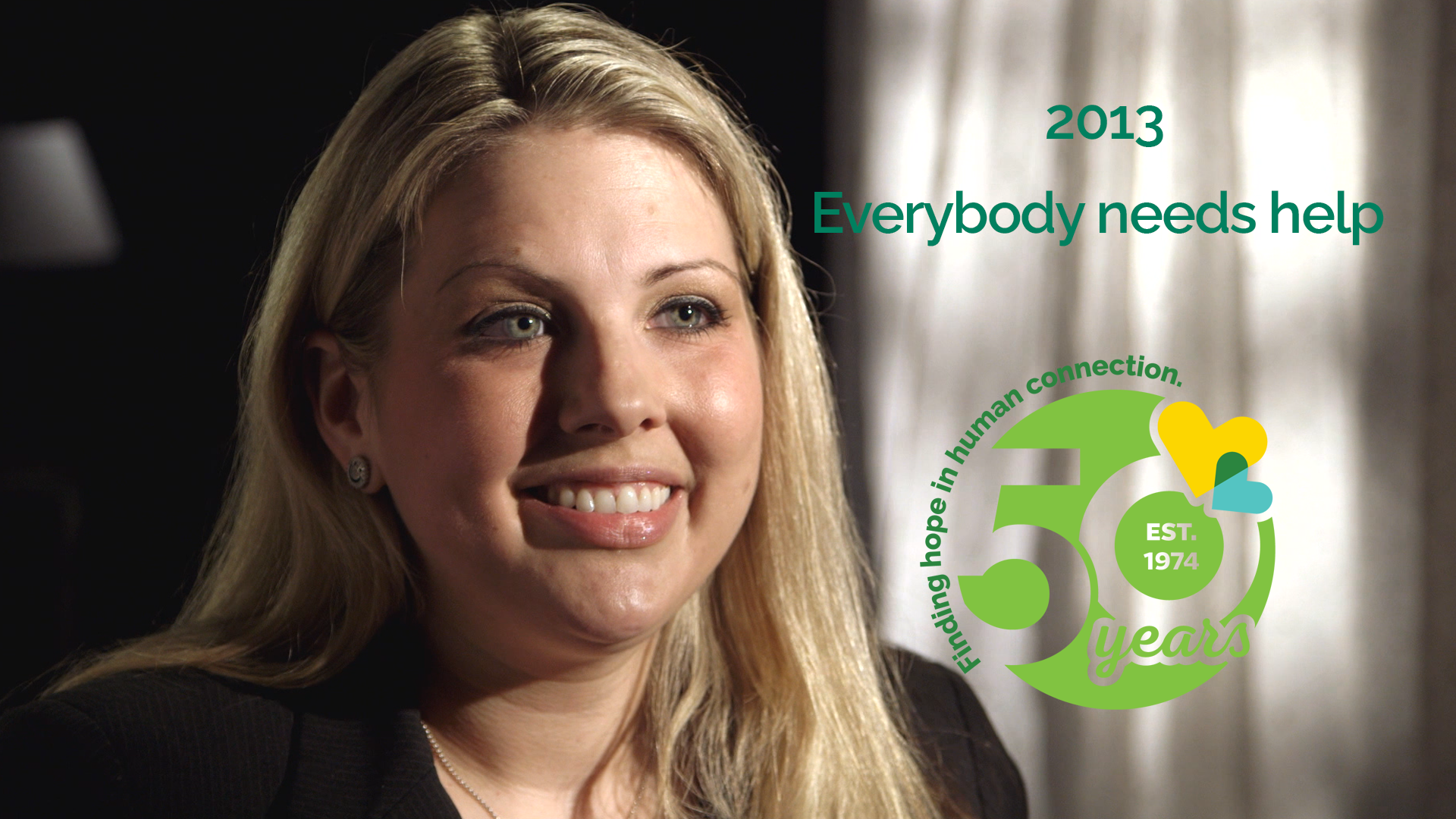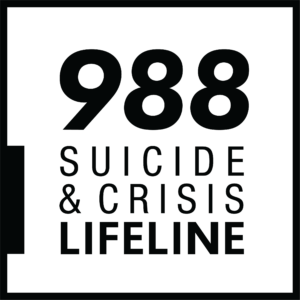A community in need that is often overlooked
David Cohen is a suicide loss survivor and mental health advocate living with neurodivergence. As Samaritans journeys into its next 50 years, he hopes to help make its services more accessible to the neurodivergent community. In this post, he highlights how individuals living with neurodivergence are typically at an increased risk for suicide and the need to expand prevention and grief support services to meet diverse needs within this community.

Samaritans often says that community and connection is suicide prevention. This message is particularly meaningful to me, because I know firsthand that a support system is often critical as a suicide prevention measure, as well as when grieving a loved one’s suicide.
Last year, Samaritans shared beautiful examples of the power of community and connection at the annual Breakfast for Hope. We heard from individuals taking important steps to support loss survivors, and to prevent suicide in high-risk communities including youth of color, LGBTQ+ youth, the Latinx community, and so many others. We also heard that suicide prevention looks different depending on where you are coming from and what obstacles you face each day.
It made me think about how suicide prevention and grief support should look for another community that is disproportionately impacted by suicide: the neurodivergent community. I live with neurodivergence, which I commonly experience as an atypical processing of information and increased difficulty with learning and socializing (definitions of neurodivergence can vary depending on who you ask.)
When I lost my brother to suicide, it left me wondering how my diagnosis might play out in my now lifelong grieving process.
While the intent here is not to send the message that a diagnosis or a label defines one’s life (it is very possible, in fact, for one to find out later that they have been misdiagnosed,) in my experience, I have seen it make even regular routines of daily living extra challenging, stressful, and anxiety-producing for me. This has been especially true when it comes to developing a support system. When I lost my brother to suicide, it left me wondering how my diagnosis might play out in my now lifelong grieving process.
You see, it is one thing to advocate for community and connection as being important to mental health and suicide prevention, but when you have a neurological profile that can impact the very skills needed to develop community and connection, what do you do? It is one thing to work to remove the stigma of talking about mental health. But when you have a neurological profile that can impact your ability to put words to your feelings, and even learn to formulate complete sentences, then what do you do?
Compounding the issue, studies show that those on the autism spectrum have a higher-than-average risk for suicide themselves:
- Suicide is the second leading cause of death for individuals living with autism disorders.
- Up to 66% of autistic adults have considered suicide.
- Autistic children are 28 times more likely to attempt suicide.
This risk increases when someone has also lost a loved one to suicide. I first discovered the work of Samaritans following my brother Michael’s suicide in 2018. I found community in the annual 5K Run/Walk for suicide prevention, which I first participated in on my own, and then my family joined and we ran as a team. We have represented the Michael H.K. Cohen team at every 5K since. I joined the 5K committee, where my ideas for the event have been treated with the same respect and consideration as every other committee member each year.
While I, of course, never will be able to speak to the needs of all suicide loss survivors living with neurodivergence, I am hopeful that I can use these intersecting experiences of mine to help help others in this community receive the support and resources they need.
Too often, those living with conditions like mine are thrown away or disregarded by jobs, friend groups, social clubs, and a multitude of other organizations. But Samaritans has not only shown my family and me open arms, they have given me personally platform after platform of opportunities to have a voice in the fight against suicide. I’ve been able to share my ideas, perspectives, and concerns with the Samaritans team and to give input on the ways their programs have impact.
Samaritans is truly focused on saving lives, as well as on helping people (like me) create a life that they can feel proud of. Together, we reduce the high frequency of suicide in the world, and help create a world where everyone can feel valued.
When you support Samaritans, you bring this vision closer to reality and help an organization that not only saves lives, but is also dedicated to making those lives better. This is how Samaritans stands out from the rest of the suicide prevention world.
Hear more from David at the 2024 Breakfast for Hope on May 17. Reserve your seat today.
